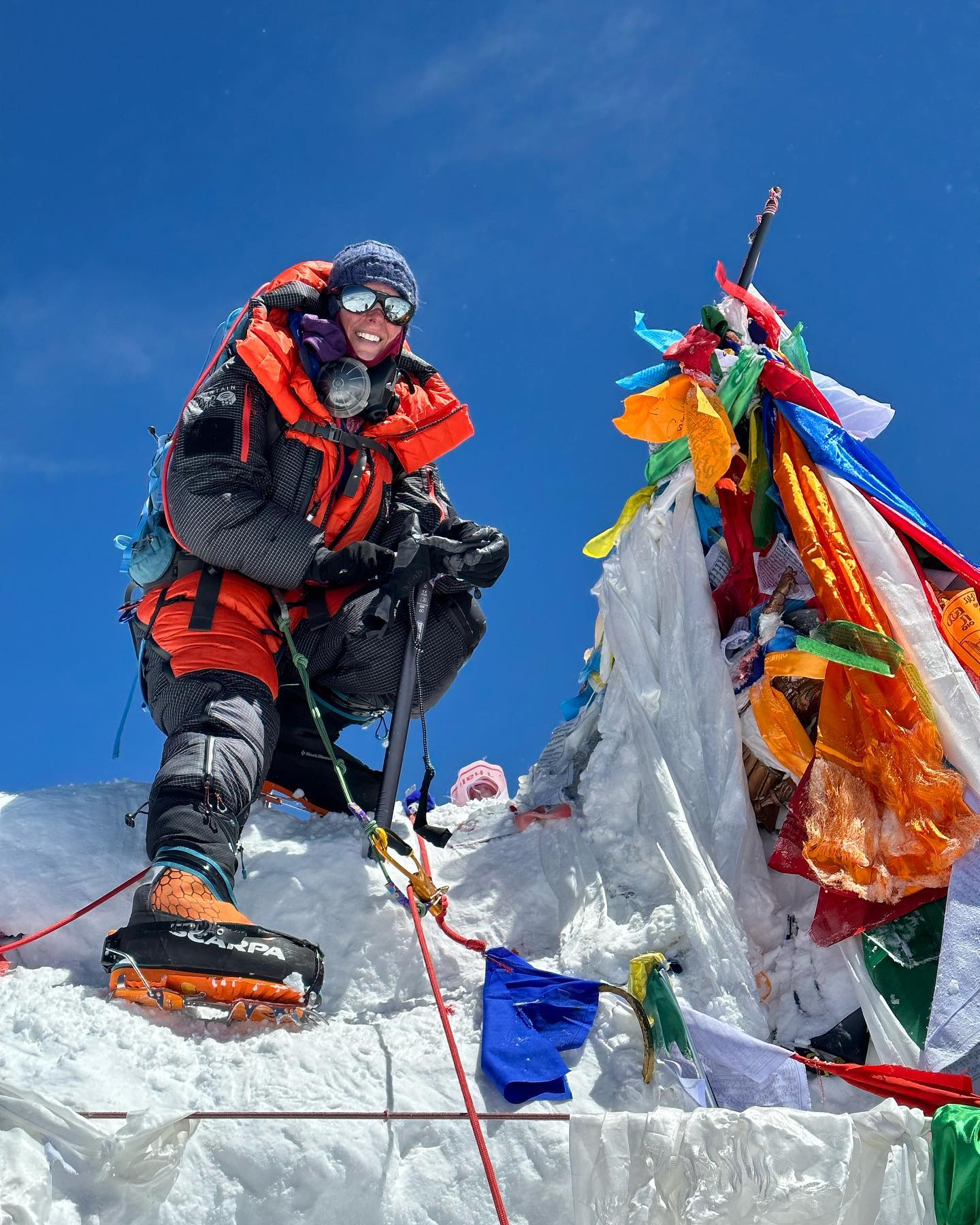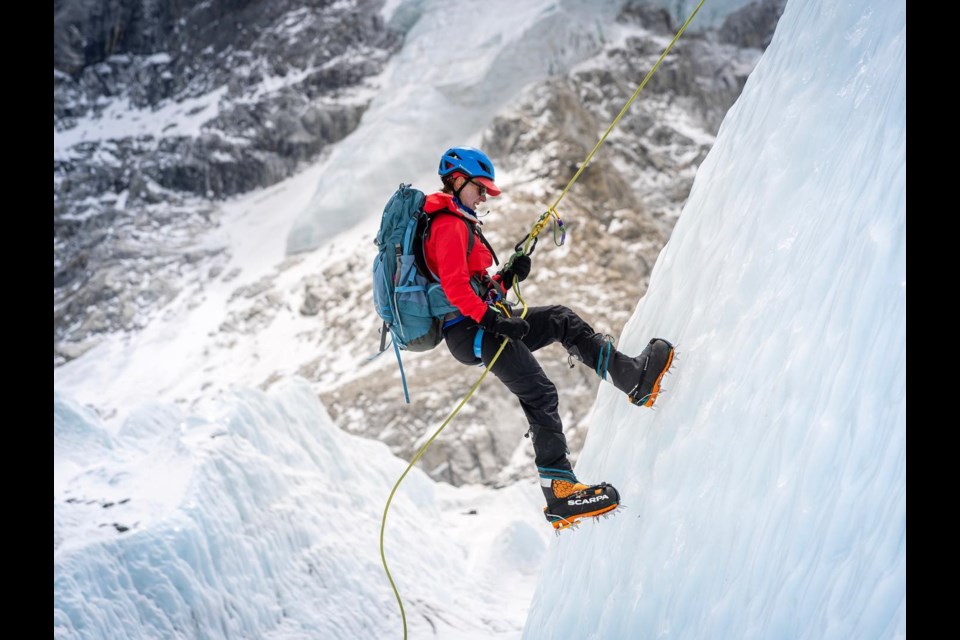Standing on the highest point on the planet is a view not many people have experienced.
In March, Debbie Bulten, 53, travelled to Nepal on a nine-week trek to climb Mount Everest, the highest mountain in the world.
At 29,028 feet, about 6,500 people have summited the world’s highest peak, 740 of them being women.
After climbing six of the seven summits of the world, Bulton was on a mission to conquer the last one.
“In 2016, I climbed Mount Kilimanjaro in Tanzania. That was my first big mountain, without realizing that it is one of the seven summits, the highest peak on each of the seven continents in the world,” Bulten said.
“That’s when my journey began. I didn’t really know about it before. After that, I wanted to search out the next peak, and the next one ended up being in Russia. And it just progressed from there.”
Bulten's journey to Mount Everest lasted almost two months, from April to May.
“I joined other people on the expedition, people that I had never met before. You send your resume in, you are interviewed to be part of an expedition team, and then you meet your team when you get to your destination,” Bulten said.
“It’s funny, because you are all strangers at the start, but you all become so connected with this mutual interest in achieving the same goal. So, you connect and make friends quickly. They become your new best friends.”
Bulten met people from Europe, South Africa, South America, and North America.
“It really is an international type of thing. You don’t know who will be on your team or who you will meet. It truly is a bringing together of cultures because you are exposed to not just the culture of the place you are in, but the different cultures of your teammates,” Bulten said.
“So, you learn so much about life and people from other countries. It’s a real learning experience, full of development and growth. It’s going outside of your comfort zone but it’s also you are learning things that just come to you when you are there.”
The trek to the summit takes months of physical preparation and weeks of acclimatization to get used to the mountain's oxygen-starved altitudes.
“I can’t really pick a specific time that I found my love of climbing. It all happened very organically. I’ve been a runner my whole life. It wasn’t until I started cross training for triathlons which includes running, swimming, and cycling. While I was doing an off-road triathlon, I fell in love with trails, so I started trail running, endurance running, and then ultra runs," Bulten said.
"But then when I got into the mountains, for an endurance run, that was it. I fell in love with the mountains. It was a process over two decades of getting me to that point.”
Climbing Everest is as much a test of mental strength and endurance as of physical stamina.

“Things can go wrong. It’s a real possibility that does stare you in the face. It’s something I tried not to dwell on. There’s fear when you are there, of course, but managing that fear is all part of the process. If you become paralyzed by that fear, you will not be able to continue,” Bulten said.
“So, you try to mitigate the risks whenever you can."
For Bulten, it was about being present with each step forward.
“Its about keeping the fear at bay, staying present, and just being aware of what you are doing, with each step you are taking. Don't get sidetracked. Focus on your footsteps, on what you eat and drink, and be aware of your surroundings because there are hazards on a mountain. There’s weather and avalanche risks and other things that are going to come at you,” Boulton said.
“It's important to be aware that there is that possibility and relying on your teammates when you need some help."
Staying healthy was one of the biggest barriers.
“It's very difficult when you are on a mountain for two months. There’s so much that you are exposed to. You are trekking up a valley for the first two weeks until you get to basecamp. You are staying in little villages. The food and everything is different. And people bring illnesses with them. And, there was alot of illness on our team,” Boulton said.
Much of Bulten's training was local on Chicopee Ski Hill in Kitchener.
“It was close. Typically, I would put a heavy pack and walk up and down the ski hill for the entire day. And that would be my base training,” Bulton said.
“You work your endurance and strength that way and you also work on your mental strength because it can be boring to walk up and down a hill all day. I did go to Arizona and Colorado. I also spent time in the Adirondack Mountains in New York to get some higher altitude mountain training in.”
Throughout the years, Bulton, a mother of three grown children, says she is grateful for her family’s support.
“They sacrifice a lot because I am away and training. But it’s something that’s been happening for while, not just something that I pulled out of a hat and said, hey guys, this is something I’m going to try,” Bulton said.
“Even before my kids were born, this was just part of my lifestyle So, they have just grown up with it. It’s become normal to them."
Once at the top of Everest, of course the descent still lies ahead.
“It’s weird feeling to describe because it is so surreal. You know you are there, and you know that you have done it. You have spent umpteen years trying to get to that point but its hard to celebrate because there is still so much in front of you. The descent is actually the most treacherous part of the climb because you are so exhausted. Just the visual of being able to see where you’ve come from, it really is a mental test where you have to keep your wits about you and be very careful with no mistakes. So, you can’t really celebrate yet when you are up there, but you don try to take it all in,” Bulton said.
“I did catch a video because I knew that I wanted to see it after. And even watching it now, it’s still doesn’t seem real sometimes."
When she did finally got there, Bulten's team had the mountain to themselves.
"It was a glorious day. It was sunny with low wind. It was about minus 30, but without the wind, it seemed warmer. It was an awesome day on the mountain and there was no one else on the summit. So, we were able to spend as long as we wanted up there. We probably had about 45 minutes before we started to head down,” Bulton said.
“But really the summit is such a small part of the whole journey. It took two months to get to that point. It really is about the journey getting there. That’s what takes the time. That’s where a lot of your feelings and emotions are processed, and where most of the stuff happens. The summit is the icing on the cake, and then you have to head back down.”
Since conquering Everest, Bulten is already looking forward to her next climb.
“I think having a goal to look forward to is important. I’m a very goal-oriented type of person. There are a few races that I’m looking at. And there’s another mountain that I’m looking at potentially climbing next year. But these are just ideas at this point. I'm planning and researching and having fun in the process,” Bulton said.
When Bulton is not climbing, she enjoys spending time with her family, and training.
“I just love the physical aspect of training. I do train year-round, even if I don’t have something specific that I’m training for. My husband and I have a company together, and fortunately, we have home offices. And family time, that’s also so important to me,” Bulton said.
The experience is still one that Bulton says is hard to take in.
“I was so monumental having spent years getting to that point,” Bulton said.
“But I think that it’s really cool. I look at pictures and I just find myself grinning.”



